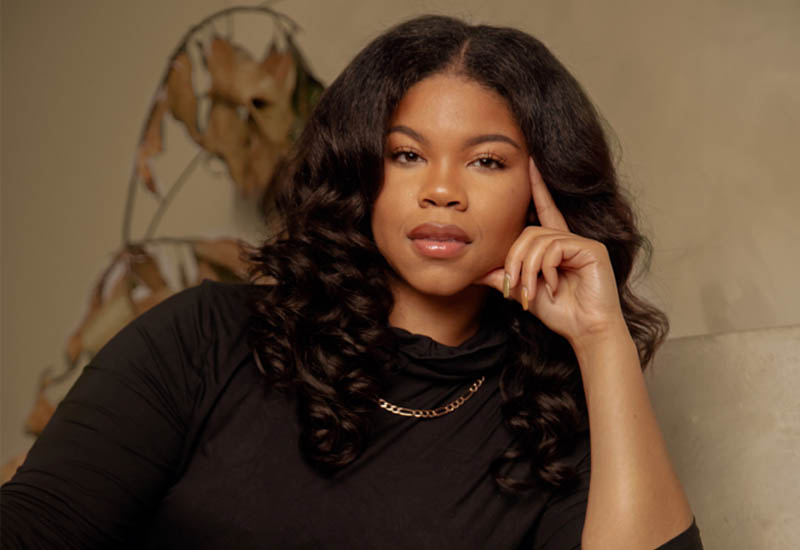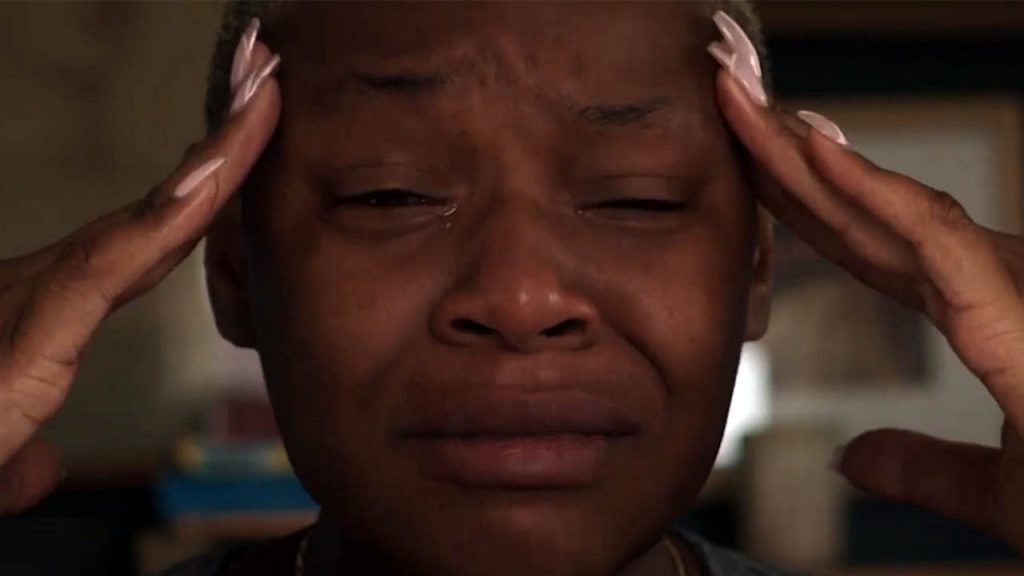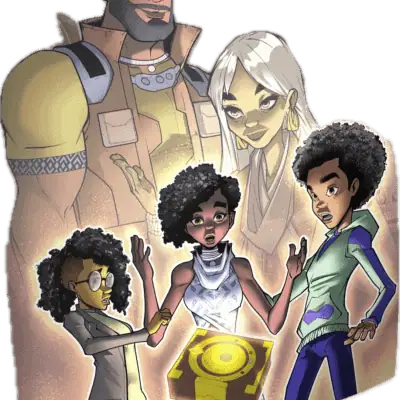
Grief is silent, and it is also overpowering. It can be spiritual and enlightening, or like the depths of hell, an unspeakable horror. Grief is a great sigh of relief, or a permanent weight of stones on one’s back. Instantaneously, the grieving process can transform itself from calming ripples to a catastrophic hurricane.
“Grief is like water” are the first words spoken in Tailiah Breon’s Award-winning anthology short film Grief. Coinciding with powerful footage of water and its dynamic states of being, the opening poem continues: “It’s calming, raging. It finds you in the day, and at night. It travels, takes on new forms; can find its way through anything. We cleanse it, we drown in it, swim in it. We hydrate from it, we cannot live life without it. We cannot conquer it, but we will learn to live with it. Like water, gas, liquid, ice. Holy Spirit, God, Christ, cleanse this grief with your water.”
Through a series of heart-wrenching stories that are infused with raw emotion, Breon explores grieving in all of its complexity. Grief felt while in the workplace, at the family dinner table, or in moments of solitude and stillness. Anguished emotions that are triggered from a photograph, an item, a memory, a sound. Although each story is unique, one common thread fuses them together: every character allows themselves to truly feel their suffering, which is a crucial part of the healing process when we experience loss.

Breon’s own transformative experience with grief is what gave the film its profound level of authenticity. “This film was a labor of love in honor of my late Grandmother Peggy. She is more than my grandmother, she was my best friend,” she said. “Experiencing her physical absence has connected me to grief in a way I have never known. It ignited a side of my emotions and pain that I didn’t know existed. The past year has inspired an opportunity to use my creativity as an outlet to help comfort others and make my evolving pains purposeful. This film is important because it serves as a safe place and reminder that we are all dealing with the “unbearable.” It gives a sense of comfort and understanding.”

Because of the film’s admirable transparency and relatability, it was quite easy to forget that Grief is a work of fiction; the acting was so visceral that it seemed as though we, as viewers, were peering into the most intimate and vulnerable portions of one’s life. We watch crying that takes the form of howling, an animal-like quality that signifies the deepest emotional pain imaginable. We examine the eyes of people in grief, those pools of sadness and despair, and we empathize as it connects us with our own wounds.
As both the writer and director of the film, Breon explained how she helped the actors tune into their grief while on set. “Everyone grieves. And all grief is not for a life. We grieve old habits, old versions of ourselves, old places and people, old ways. We simply created an atmosphere on set that was safe for people to release,” she said. “Sometimes I played certain songs to help trigger an emotion and moment in time for the actors. We talked, we shared stories in private, we hugged and sat in silence. We also had support on set with a counselor and therapist to help all of the actors not only tap into pain but to be nurtured out of it after each take. That is what made this possible.”
Reflecting on the journey of creation and the impact of the film, Breon spoke about serving others and the importance of being vulnerable. “I consider this project an act of service to bring connectivity to all those who can relate. Sometimes the greatest healing is to simply be understood. I hope that when watching this, you hear our voices say, “Yes, we get it. We understand how you feel. And you are not alone.” This experience offered another level of healing and purpose to my pain. The challenge was trusting that my vulnerability would pay off and the breakthrough was seeing how many ways the film touched people in a way that they needed it.”

While Grief is a work of fiction, the entire film was inspired by Breon’s late Grandmother Peggy. In the closing story, a widow remembers the joy of dancing to records with his late wife, and transports himself back to that precious moment. Even in the midst of grieving, there is comfort to be found in the memories that will always remain. “The final scene was inspired by my Grandfather who is now without a wife. It was the sweetest, most real, jarring yet sweet story and that’s why I felt it was important to make it last,” said Breon.
“Grief is a bittersweet journey..the same memories that make you smile can be what also makes you cry. This scene was deep and personal. This was inspired by the love I grew up seeing. And though this film takes you on many rides, it needed to end with the most important reminder…To love and be loved is the greatest gift. Time is borrowed but love is FOREVER. Always remember that in the end your LOVE never dies.”
Grief was awarded second place in this year’s PVIFF Shorts Competition, sponsored by JARO.
It is executive produced by Tailiah Breon and Stephanie Adele, and stars Michael Anthony, Paul L. Davis, Jamal Farrar, LaNita Fox, Xavier Mills, Wanda Rouse, Elijah Spencer, and more.
Watch Grief by visiting JARO Films.
Upcoming projects directed by Breon include Kirk Franklin’s The Night Before Christmas, which will premiere on Lifetime on December 10th at 8/7c. A psychological thriller titled “Bebe,” inspired by Robin Harris’s Bebe’s Kids, is also in development (view trailer here). Lastly, Breon is in the process of writing and developing her next story for 2023 titled FULL CIRCLE, which she describes as “a beautiful story about family and love.”
To stay up to date with Breon’s work, follow her on Instagram at @tailiahbreon.





